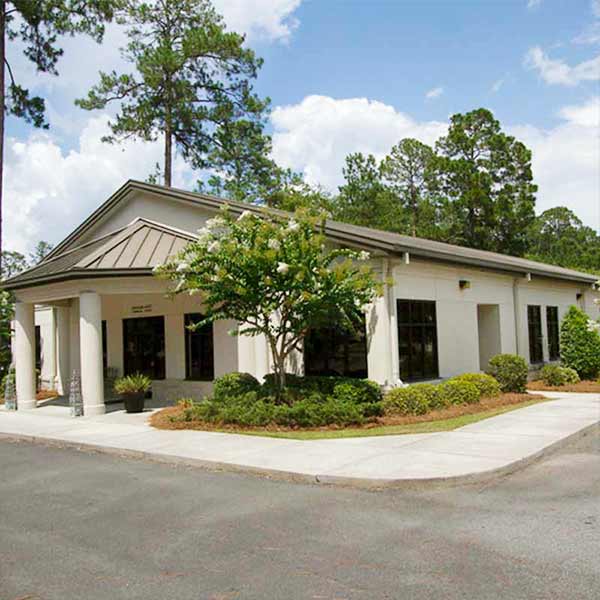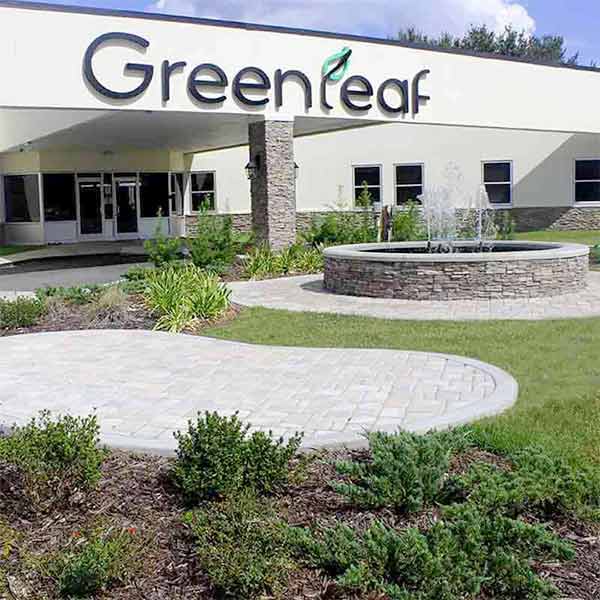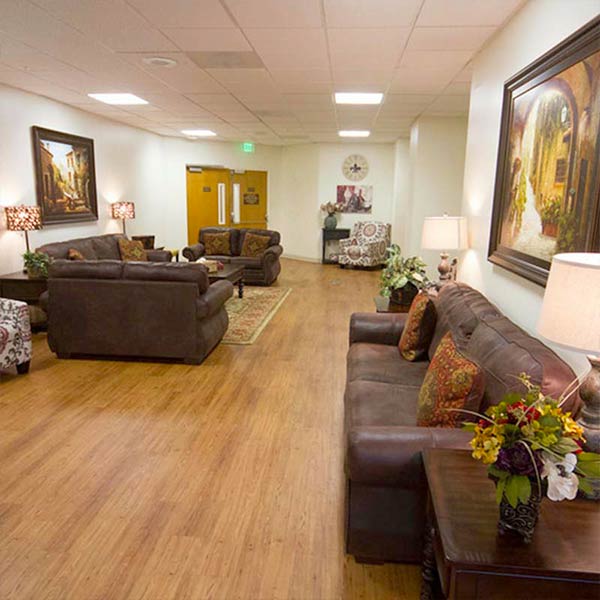Greenleaf Hospital provides effective treatment for men & women struggling with prescription painkiller addiction. At Greenleaf, you can learn how to achieve lasting sobriety.
Prescription Painkiller Addiction Treatment
Understanding Treatment for Pain Pill Addiction
Regardless of what led you to abuse a prescription painkiller or multiple painkillers, you don’t have to keep living your life addicted to drugs. Prescription painkillers are known to be nearly as potent as heroin, which is why your life has likely spiraled downward since you became addicted to them. Yet, even if you lost your job, relationships, good health status, and other important parts of your life, a brighter future can lay ahead. By engaging in effective rehab treatment, you can defeat your dependence on prescription painkillers once and for all. One brave step, one phone call, and the desire to live a sober life are all that you need to break free from the powerful grip of your painkiller addiction.
As one of the best painkiller addiction treatment centers in Valdosta, Greenleaf Behavioral Health Hospital is proud to offer you the opportunity to live the sober life you deserve. Our addiction rehab center has helped countless men and women like yourself learn how to live drug-free lives, and we firmly believe that we can do the same for you. Our rehab features evidence-based interventions, medical support, mental health treatment, and 24/7 encouragement and care from a deeply dedicated staff. Therefore, if you would like to begin your life-changing recovery journey and acquire the skills you need to turn your life around, Greenleaf is where you can go. Here, the hope for a better tomorrow can start today. Call us now to complete an assessment.
Helping a Loved One
How to Help a Loved One or Family Member Get Treatment
A dependence on prescription painkillers can destroy a person’s life. If someone close to you is battling this sort of issue, then you’re probably aware of what this type of addiction can do. And even if you’ve tried to help a friend or family member overcome a prescription painkiller abuse problem in the past, you still possess a unique role and opportunity to help this individual get the treatment he or she needs at this crucial point in his or her life. Consider doing the following:
- Form a circle of support for your loved one and yourself. It’s important to have as many people available as possible to rally around you and your loved one so that the most favorable outcome can occur.
- Learn about prescription painkiller abuse and addiction. By giving yourself an education on this type of chemical dependency problem, you may be able to understand what your loved one is going through with more empathy.
- Conduct research so you can recognize the signs of overdose, enabling yourself to act quickly on behalf of your loved one. Knowing exactly when to call 9-1-1 can alleviate some of the panic involved when someone close to you is in need of help during an overdose.
- Talk to your loved one about seeking care at a treatment center. He or she may be in denial, refuse treatment straight away, or become defensive. However, if you remain compassionate and calm, he or she may be more receptive to engaging in rehab.
- Help your loved one find a program that is effective in helping people overcome prescription painkiller addictions. Advise that your loved one schedule an assessment for admissions and offer to go with for support.
- Once your loved one is in treatment, don’t disappear. Try your best to remain a source of support and be engaged in his or her recovery process.
- Tend to your own physical and mental health. If you don’t, you likely won’t be able to help your loved one to the best of your ability.
Lastly, learn what you can do to help your loved one remain sober once he or she has competed treatment. In doing so, your loved one is more likely to stick to his or her commitment to living a sober lifestyle for the long-term.
Why Choose Us
Why Consider Treatment for Painkiller Addiction at Greenleaf Behavioral Health Hospital in Valdosta, GA
If you’ve been abusing prescription painkillers for some time, then you’re likely aware of how this type of addiction has negatively impacted your life. You may have started abusing other drugs at the same time, have experimented with heroin when you weren’t able to get your painkiller of choice, or you may have gone to great and illegal measures to get more of the medication that you’ve been misusing. Furthermore, if it hasn’t happened already, you’re at risk for developing worsening mental illness symptoms or new disorders that can compromise your ability to independently stop your substance abuse and live a satisfying life. Additionally, your personal relationships have probably been negatively impacted, you may have lost or are at risk of losing your job, and there’s a good chance you’ve had encounters with the legal system because of your abuse of prescription painkillers. However, if you’d like to avoid a potentially fatal overdose and heal from the effects of grappling with this form of chemical dependency, know that help and hope exist. By engaging in an effective rehab center, you can truly overcome an addiction to prescription painkillers.
Among the options for care that are at your disposal, inpatient rehabilitation is often the most effective way to jumpstart the recovery process. Within this form of care, you can safely withdraw from prescription painkillers, receive the support you need to hold true to your commitment to being sober, and participate in services that can build your confidence and teach you the skills needed to refrain from future abuse of these substances. Additionally, your risk of relapse drops drastically by partaking in this type of treatment, as you will no longer have access to or be able to abuse prescription painkillers. Therefore, if you’re wanting to reclaim your life from a painkiller addiction for good, it’s best to consider inpatient treatment. It can save your life.
Rehab Philosophy
Rehab Philosophy and Benefits
As one of the best treatment centers in Valdosta, we recognize the long path that lead people to our door and the complications of life that have occurred along that path. It is our mission to accept the responsibility as the destination of that long journey. We are committed to giving 100% of ourselves in effort and training to become experts in our field. Our mission is to provide exceptional treatment in a safe environment, ultimately sending our patients from our door onto the road of life-long recovery.
Treatment Options
Treatment Options Offered at Greenleaf Behavioral Health Hospital
Upon arrival to our painkiller addiction treatment center, each patient will complete an initial assessment that is designed to provide us with all of the information we need to develop a specialized treatment plan that is focused on each patient’s exact needs. Once the assessment is complete, it will be reviewed by one of our psychiatrists in order to confirm admission. All of our programs are designed to meet the individual needs of our patients through a comprehensive and compassionate approach, with treatment being led by a team of highly trained psychiatrists and mental health professionals. Some of the treatment methods we use at Greenleaf for the treatment of prescription painkiller abuse and addiction include:
Detoxification: If you or your loved one is physically dependent upon prescription painkillers, then the first step in our program is going to be detoxification. This is done to remove all toxic substances from your body. Throughout this process you will be continuously monitored to ensure your safety and we will do all that we can to make you as comfortable as possible.
Medication management: There are no specific medications used to treat prescription painkiller addiction; however, they may be used during detox in order to help control some of the symptoms of withdrawal. Additionally, it may be recommended that some of our patients take antidepressants or other psychiatric medications to help control the symptoms of disorders that commonly occur with prescription painkiller abuse. All patients will meet with a psychiatrist daily for medication management.
Individual therapy: Individual therapy sessions are held on an as-needed basis at our treatment center and are a time where patients can meet privately with a therapist. These sessions can help patients address any painful emotions that they are struggling with and learn how to identify triggers that lead to the abuse of prescription painkillers.
Group therapy: Group therapy sessions are held four times a day and include a wide variety of topics. Some of the major topics discussed in these sessions can include stress management, anger management, effectively expressing emotions, communication, and life skills.
Family therapy: After an initial session is held upon admission, family therapy is offered on an as-needed basis at our rehab center. Additionally, family education is provided to those who have a family member receiving care in our treatment center, which can help provide loved ones with support and education about prescription painkiller abuse and addiction.
Recreational therapy is held once a day and provides individuals with the opportunity to participate in activities such as tennis, basketball, swimming, or gym time.
Depending upon your treatment plan, you will likely participate in A.A. or N.A. meetings or have meetings with an outside therapist.
Continuing Care
Continuing Care and Levels of Treatment
As the time for your discharge from our addiction rehab center draws closer, you will work closely with your loved ones and treatment team to develop appropriate aftercare options. Some adult clients may choose to join our partial hospitalization program (PHP), which meets four hours per day. Engaging in PHP allows clients to work on their recovery during the day while returning to their communities in the evenings. Other clients are able to return home with referrals to community resources in Valdosta and traditional outpatient therapy. We also offer a weekly aftercare meetings for our clients to meet and discuss any challenges they are facing in their home life and with their recovery. Once a patient is discharged from our outpatient program, we hold an aftercare program every Thursday evening in order to check in on our patients’ wellbeing.








